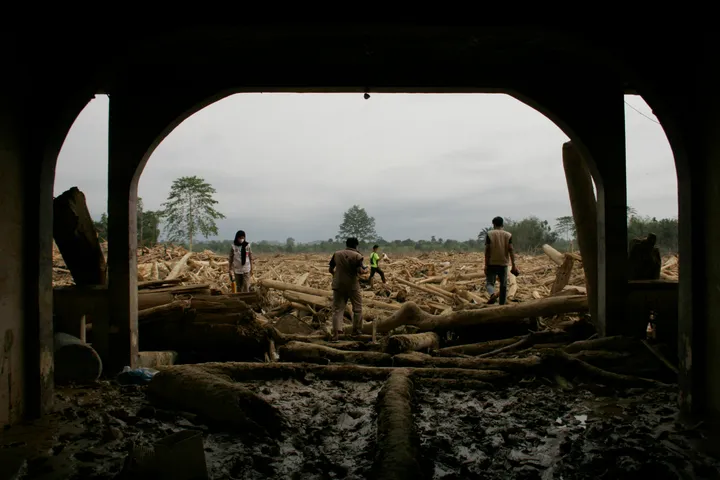On a late September afternoon in 1996, Latifa (name changed to protect her identity) heard that the Taliban had entered Kabul, a city she was born and raised in. There had been rumours about this for weeks, in the neighbourhood, in her high school, even at home. But the 16-year-old did not know how radically her life was going to change.
“We were locked in our homes; prohibited by the Taliban from leaving the house. Our schools were closed and the radio was our only source of information,” she said, recalling the days living under the Taliban regime in Afghanistan, after the brutal, bloody and prolonged conflict that had ensnared her country.
While the conflict subsided to some extent after the Taliban takeover, the armed group ruled with an iron fist, deploying harsh laws and putting curbs on the mobility of women.
“Women could only be out of the house in a burqa and accompanied by a mahram [male escort who is a relative you cannot marry]. There was no negotiation over that. We never got the chance to protest,” she told TRT World.
After a few months under lockdown in her own country, Latifa had an urgent need to visit the dentist. “I had an unbearable toothache and I asked my mother to take me to the dentist, which was about a 10-minute walk from our house,” she said. However, none of the women in her family had worn burqa before. “We were four women in our house—I along with two of my sisters and my mother. But none of us owned a burqa. But my mother had one really old burqa that she inherited from her grandmother,” she added.
After much discussion, Latifa wore the old burqa and her mother covered herself with the chador—a really large shawl-like scarf—to visit the dentist. “My mother insisted that I take the burqa since being a young teenage girl, the Taliban were more likely to inspect my clothing. She thought that since she’s an older woman, they might not be so strict about her attire,” Latifa said, adding that her mother was around 55 years old at that time, and even in the strictest interpretation of Islam, rules for older women are often relaxed.
Dressed as conservatively as possible, Latifa and her mother set out to seek medical help. The streets of the central market, otherwise known to be a bustling crowded area, were deserted; Latifa and her mother were among the handful of people walking across their city streets that had been turned into a ghost town.
“A young boy on a cycle came towards us and told my mother, ‘ Amr bil Maroof [Taliban’s moral police] is on its way in this direction and they will not approve of your cover. Please turn around and go home before they catch you.’ We panicked, and immediately turned around to go back home,” Latifa said.
Unfortunately for them, they were a too late to react, the police car pulled over behind them and a Taliban official stepped out screaming at her mother. “He was a large man, wearing a black turban and an angry frown on his face. He started yelling at us, calling us kaffir [unbeliever]. ‘You are not wearing a burqa, you are disrespecting our religion. You should be beaten’ he told my mother,” she said, the memory bringing back intense emotions.
The Taliban was carrying a hollow pipe filled with sand to make it heavier, and he brought it down in several blows on Latifa’s mother, who collapsed.
“I was so terrified and afraid, I was would be beaten next; I left my mother and ran,” she added, with deep remorse. “It bothers me even today, that I didn’t stay and save my mother. Why I didn’t stand up for my mother? Why I didn’t resist the Taliban? Why I left her alone? I ask myself this many times,” she added slowly.
Latifa’s mother suffered severe internal bleeding on her legs, thighs and lower back. She was bedridden for weeks, but most of all she was depressed at the humiliation she suffered.
“She was in so much pain, she couldn’t even pray,” Latifa said. Her family left the country soon after, and sought refuge in Pakistan. “We were all very angry, we all wanted to do something about it, but we couldn’t. We couldn’t live like this so we left,” she said, adding that the best way forward was to become the very antithesis of what Taliban stand for.
“We became strong women who try to shape Afghanistan. I studied hard and returned to Kabul as a doctor, while my older sisters are activists who continually campaigning for women’s rights,” she said.
Latifa’s story is by no means an isolated event, and neither did it end with the fall of the Taliban regime in 2001. Many women in Afghanistan suffered under Taliban rule as the armed group imposed an extremist interpretation of sharia, Islamic laws, which many scholars argue are misinterpreted and lack scholarly consensus.
Even now, 18 years after the fall of the insurgent regime, the Taliban continues to practice such restrictive laws in areas it controls. Earlier this month, three women were publicly lashed in the Sancharak district of the northern province of Sar-i-Pul for not wearing the burqa.
However, in a rare response, the locals in the area stood up to the Taliban and rescued many other women from the same fate. “The Taliban wanted to lash the women, but people didn't allow them. They confronted them and rescued many of the women punished by the Taliban,” Zabiullah Amany, the spokesperson of the Governor of Sar-i-pul told the media, last week.
The recent incidents, coupled with the ongoing talks between the US administration and Taliban, have raised concerns among several Afghans about the impact of a possible peace deal could have on the current Afghan legal system. The Taliban has already made demands for changes in the Afghan constitution.
However, the Afghan Minister of Justice Abdul Baseer Anwar strongly rejected the demands and assured the constitution would ever be changed or compromised. Dismissing concerns that any potential peace deal with the insurgent group might include the promise of an amendment of Afghan laws, Anwar said that the Taliban were misinformed if they they thought they could impose laws dictated by an establishment outside the country.
“We are not opposed to the Taliban negotiating with the Americans, but if they want to come to Afghanistan and bring about changes, they need to talk to the Afghan government. Because even if say Zalmay Khalilzad were to promise the Taliban something like that [changes to constitution], he is American and Afghanistan belongs to Afghans,” he reasoned, referring to US’s special envoy who is leading the ongoing peace talks.
Anwar further emphasised the Islamic nature of the constitution urging the Taliban to highlight specific aspects of the laws that they deem unislamic.
“There is nothing in our constitution that needs to be improved or changed if the Taliban return. It was made by experts, and religious scholars from all over the country who know about Islam more than the Taliban,” he told TRT World. “We are open to sitting down with the Taliban. We want them to show us which law is against Islam. I am certain they won’t be able to justify their claim,” he added. He reiterated: “Nothing in the constitution is against Islam.”
Samira Hamidi, an Afghan women’s rights activist, further pointed out at the informal nature of Taliban’s justice system. “Even during their regime, they didn’t have a constitution or laws and legislations that were developed by the consent of people. Their laws are based on their ideology, and is not even based on the religion or Sharia. Their approach is unacceptable,” she said.
Hamidi observed that the most resistance that has come thus far from the lack of transparency in the ongoing talks, has been from women who are the biggest victims of their justice system. “Afghan women are calling for preserving the 18 years of progress, as well as the potential for future progress. One of the important points we’ve raised in this debate is protecting our constitutional rights, as well as protecting laws, legislations and policies in the benefit of Afghan women,” she said, urging all involved in the negotiations to protect the existing laws. legislations and structures. “These [laws] may not be very strong, but they are functional in most parts of the country. They should stress on the continuation of these systems,” Hamidi said.
Defending the country’s penal code, the latest revision of which was launched in February 2018, the minster stated that the legislations were not only written in accordance to Islam, but also met with their commitment to the international community and conventions.
However, for those like Hamidi and Latifa many aspects of their social and public life are non-negotiable. “It is key that certain red lines are kept during the negotiations, particularly when it come to women’s participation, acts of justices, as well as decision making processes,” Hamidi said.
Latifa echoed a similar view saying she's concerned about the future of Afghanistan. No stranger to human suffering, she serves as a doctor in one of Afghanistan’s busiest hospitals, and has seen the worst of the tragedies.
“The next few months are very unpredictable because nothing is in our hands; Afghans have no control over the future. The big world powers are deciding our fates,” she said of the peace talks between US and Taliban.
She does hold some fears of the Taliban attempting to bring back harsh laws after a peace deal is struck. “But I also have a lot of faith in the youth of Afghanistan today. We will not allow that. I will not allow it. I will be among the frontline of such a resistance,” she said.
























